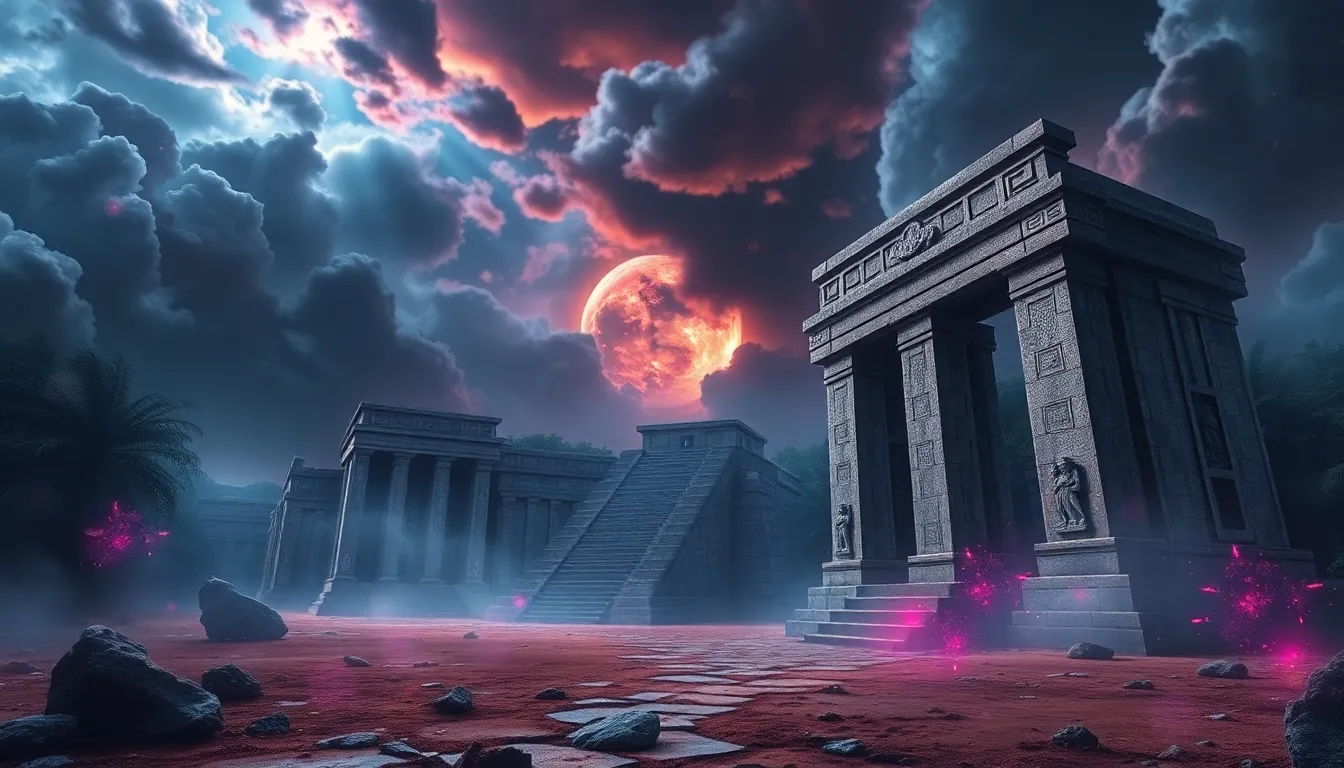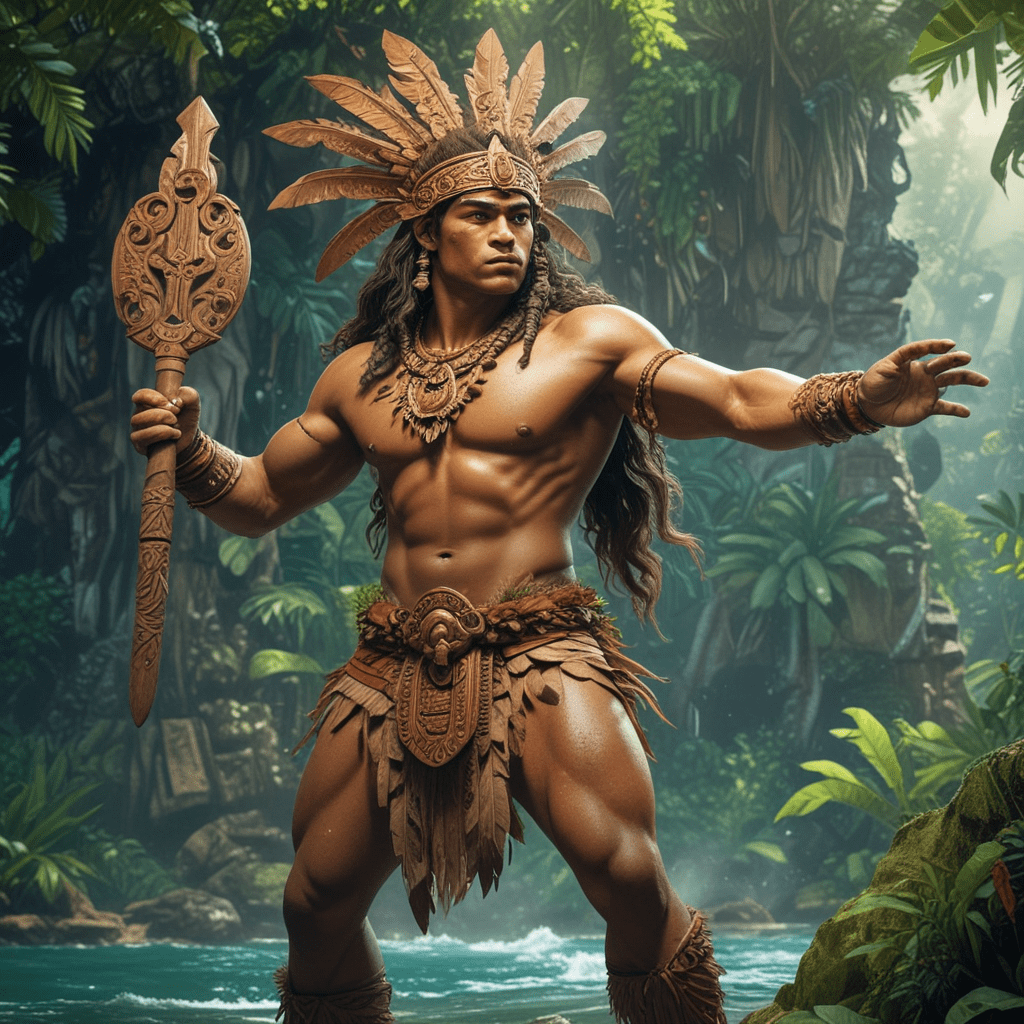Cultural Heroes: The Legends That Inspire Generational Wisdom
I. Introduction
Cultural heroes are individuals who embody the values, beliefs, and ideals of a society. They serve as symbols of excellence and courage, often inspiring admiration and emulation among their communities. These figures are not merely celebrated for their achievements; they play a crucial role in shaping the values and beliefs of generations.
The importance of cultural heroes extends beyond individual stories; they help to forge collective identity and shared history. This article will explore how legends inspire wisdom across generations, examining the characteristics, historical context, and lasting impact of cultural heroes.
II. Understanding Cultural Heroes
A. Characteristics of a Cultural Hero
A cultural hero typically possesses several defining characteristics:
- Exemplary Traits: They demonstrate virtues such as bravery, wisdom, and integrity.
- Relatability: They often arise from humble beginnings or common backgrounds, making them relatable to the general populace.
- Storytelling: Their narratives often include significant challenges or trials that they overcome, enhancing their legendary status.
B. The Role of Cultural Heroes in Different Societies
Cultural heroes serve various roles across societies:
- They act as role models for personal development.
- They inspire social cohesion by embodying the collective aspirations of a community.
- They provide moral and ethical guidance through their stories and actions.
C. Examples of Cultural Heroes from Various Cultures
Across the globe, different cultures celebrate their heroes:
- Nelson Mandela: A symbol of resistance against apartheid in South Africa.
- Mahatma Gandhi: Known for his philosophy of non-violence and civil disobedience in India.
- Hercules: A legendary hero from Greek mythology known for his strength and heroic deeds.
III. The Historical Context of Cultural Heroes
A. The Evolution of Cultural Heroes Through History
The concept of cultural heroes has evolved significantly over time. In ancient societies, heroes often emerged from mythology and folklore, representing the ideals of the time. As societies progressed, the attributes of heroes began to reflect the social and political challenges of the era.
B. Significant Events That Shaped the Perception of Heroes
Historical events such as wars, revolutions, and social movements have played a pivotal role in shaping the perception of heroes. For example:
- The American Revolution produced figures like George Washington, who became symbols of freedom.
- The Civil Rights Movement elevated figures like Martin Luther King Jr. as champions of equality.
C. How Historical Context Influences the Legacy of Cultural Heroes
The legacy of cultural heroes is often intertwined with the historical context in which they lived. Their actions are interpreted through the lens of contemporary values, which can lead to re-evaluations of their significance over time.
IV. The Impact of Cultural Heroes on Generational Wisdom
A. Transmission of Knowledge and Values Through Stories
Cultural heroes serve as vessels for transmitting knowledge and values. Their stories are passed down through generations, often in the form of folklore, literature, or oral traditions, ensuring that the wisdom they embody continues to resonate.
B. The Role of Cultural Heroes in Moral and Ethical Education
These figures often provide moral frameworks that guide ethical decision-making. Their experiences and choices can illustrate complex moral dilemmas, making them invaluable in educational contexts.
C. Case Studies of Cultural Heroes and Their Teachings
Consider the teachings of:
- Mother Teresa: Her life exemplified compassion and selflessness, inspiring countless individuals to engage in humanitarian efforts.
- Rosa Parks: Her defiance in the face of injustice became a powerful lesson in courage and the fight for civil rights.
V. Cultural Heroes in Literature and Folklore
A. Analysis of Literary Representations of Cultural Heroes
Literature has long been a medium for immortalizing cultural heroes. Characters such as Odysseus or Beowulf embody the heroic ideals of their respective cultures, showcasing bravery and resilience.
B. The Significance of Folklore in Preserving Cultural Wisdom
Folklore serves as a repository of cultural heroes and their narratives, preserving wisdom and values across generations. Stories of heroes are often imbued with lessons that reflect societal values.
C. Comparisons of Cultural Heroes Across Different Literary Traditions
Examining heroes from different cultures reveals both unique and universal traits:
- Gilgamesh: A hero from Mesopotamian epic literature, representing the quest for immortality.
- King Arthur: A figure in British folklore symbolizing chivalry and leadership.
VI. Modern-Day Cultural Heroes
A. Identifying Contemporary Figures as Cultural Heroes
In today’s society, several figures are emerging as cultural heroes. These individuals often represent contemporary issues and inspire action among the youth.
B. The Influence of Media and Technology on Modern Heroism
Media plays a significant role in shaping perceptions of modern heroes. Social media, in particular, allows for the rapid spread of heroic narratives, often elevating individuals who advocate for social justice, environmental causes, and human rights.
C. Discussion on How Modern Heroes Continue to Inspire Wisdom
Modern heroes like Malala Yousafzai and Greta Thunberg inspire a new generation to engage with critical issues, demonstrating that heroism can take many forms in the 21st century.
VII. The Role of Cultural Heroes in Social Change
A. Heroes as Catalysts for Social Movements
Cultural heroes often serve as catalysts for social change, mobilizing communities around important causes. Their stories inspire collective action and foster a sense of urgency for change.
B. Examples of Cultural Heroes Who Have Driven Societal Transformation
Consider heroes like:
- Malala Yousafzai: Advocating for girls’ education and challenging oppressive regimes.
- Nelson Mandela: Fighting against apartheid and promoting reconciliation in South Africa.
C. The Legacy of Cultural Heroes in Promoting Justice and Equality
The impact of these heroes often extends beyond their immediate actions, leaving a lasting legacy that continues to influence social justice movements today.
VIII. Challenges and Critiques of Cultural Hero Worship
A. The Dangers of Idealizing Heroes
While cultural heroes can inspire, there is a danger in idealizing them. Such idolization can lead to unrealistic expectations and a lack of critical engagement with their actions.
B. Exploring the Complexities and Flaws of Cultural Heroes
It is essential to acknowledge that cultural heroes are human and may possess flaws. Understanding their complexities can provide a more nuanced perspective on their legacies.
C. Balancing Heroism with Critical Thinking and Historical Context
Balancing admiration for heroes with critical thinking encourages a more informed appreciation of their contributions and limitations.
IX. Cultivating Cultural Heroes for Future Generations
A. How to Identify and Nurture Potential Cultural Heroes
Identifying potential cultural heroes involves recognizing individuals who demonstrate exceptional qualities and who can inspire others through their actions and values.
B. The Role of Education in Promoting Cultural Understanding
Education plays a critical role in fostering an understanding of cultural heroes. By incorporating their stories into curricula, educators can inspire students to reflect on their values and aspirations.
C. Encouraging Youth to Engage with Cultural Narratives
Encouraging young people to explore cultural narratives and engage with the stories of heroes can empower them to become active participants in their communities.
X. Conclusion
Cultural heroes are vital in fostering generational wisdom and shaping the values that guide societies. By recognizing and celebrating these figures, we not only honor their legacies but also inspire future generations to embody the ideals



